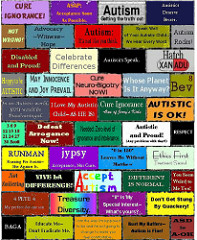“Boy, you’re asking for it!” The teen towers over me despite being a stair lower, and the fierce glower makes me flinch away, which moment is my undoing. The world spins as I am elbowed away, lurching drastically over the railing at the vertiginous two-story drop, then my footing slips and I am skidding down steps to crash on the midway landing. The herd of students storms past me, an impediment to their passage between classes. I didn’t ask for that, I protest silently as I taste blood, still unsure of what had precipitated the swiftly violent interaction in the first place.
“Well, if you’re going to choose to be irresponsible and leave your math book at school every day, then you’ve just made the decision to not have any reading time tonight,” declares my mother righteously. I meant to bring my algebra book home, really. I’m not trying to avoid the homework at all. I didn’t “choose” to forget my math book again. Nor am I deciding to forgo my favourite leisure activity. Not at all. In fact, I don’t remember being a part of any of that “decision” process whatsoever. I didn’t ask for that.
My graduate school advisor leans back in his desk chair and announces, “I need to know what your decision is.” I’m still numbly trying to absorb what-all his two page letter means. A few months earlier after my first research proposal meeting, I had described some of my learning difficulties to my committee members, and each had said they would help. But now the results of such difficulties are being flung back at me, described herein as deficiencies. He is informing me that I am being removed from a research Master’s degree. Decision? I have choices? Apparently so. “I don’t make snap decisions about important things,” I hedge, mostly because my brain’s freezing in shock at this unexpected turn of events. The hourly bell jangles out in the hallway, making me wince as usual, which in turn produces a twitch of annoyance in him at my “over-reaction”. “Well, let me know what you want,” he says by way of dismissal. After a few re-reads, the “decision” proves to be rather a dilemma between outright quitting the program (not mentioned in his letter, but implied) or taking a terminal degree. Which one did I “want”? I didn’t ask for that.
There is a seriously heavy, late-summer storm brewing outside, and the air is damp and prickly. I finished the daily reading lesson ten minutes ago and am squirming hyperactively around in my seat with nothing to do. My tights itch, and my dress sashes have come undone again, causing the calico to billow ticklishly. I’m six years old and in second grade, and have not yet learned how to fidget acceptably; “good sitting”, like “good penmanship”, is something that I struggle to achieve. I’m wobbling on my chair from sitting on an ankle, and leaned over sideways across my desktop with one arm rocking back and forth off the side, staring distractedly out the classroom window. Cumulus clouds are piling up into tumultuous towers and flattening at the top into an impressively green-grey anvil. An actinic far-violet flash of lightning rips from one end of the cloud to another, and impulse wins out again – I am plastered to the window to see more. “Andrea! Sit down in your chair.” The teacher trots me back to my assigned place, and no sooner than I get my behind on the chair seat, she clamps my shoulders to the chair back to emphasize how I am supposed to sit. “You really want to miss recess, don’t you? It’s reading time. You need to stay in and read your assignment.” But I’d already read the stupid story … spending half an hour more confined to my chair and reading it all over again, thus losing out my only opportunity to vent some energy and to go spinning on the playground carousel, wasn’t what I wanted at all. I didn’t ask for that.
Decisions? Choices? Hardly.
Choices are between things you want, or at least will accept. Situations like these aren’t even “forced choices”. Even the phrase “forced choices” is part of the problem. (A forced choice should really mean a situation more like, “Okay, you’ve narrowed it down to coconut or fudge ripple; the ice cream store closes in five minutes, so you need to decide now.”) It still implies volition upon the part of the person.
Situations like these really aren’t choices; given more than one option, they are dilemmas or predicaments between bad option and worse option or intolerable option. Some “option” indeed.
Sometimes the situation is couched in the language of “choice”, but has nothing to do with the person choosing for their self. The consequences are really decided by someone else, and the language is a distractor meant to bamboozle everyone. It’s doublespeak meant to transfer the apparent (symbolic) power to the one person who in actuality has little power over the situation.
It’s also about obedience deceptively, attractively, cloaked as “responsibility”. If you’re not being submissive to someone else’s wishes, then you’re “choosing” to be irresponsible even if there is no malicious intent. The punishment chosen for the transgression is tagged as self-selected and self-imposed, when it’s anything but.
If you “choose” to have difficulties or misbehave, then you’ve “decided” to be punished by losing privileges like a much-needed recess, or having major plans derailed, (or if you’re a student at JRC, missing some of your daily food ration or getting zapped with electric shocks) or –
I didn’t ask for that.








Nick Kiddle said,
26 May 2008 at 1:13
I did a course once all about how “empowering” it allegedly is to say “I choose to” instead of “I have to”. I actually asked the trainer, if I put a gun to his head and said “Do this or I pull the trigger”, would he still say he chose to do it rather than let me shoot him? He claimed that yes, he still had a choice. I think that was when I stopped listening to a word he said.
Centenary Retrospective « Andrea’s Buzzing About: said,
1 June 2007 at 23:05
[…] systems include how we communicate, such as when the language of “choice” is really just a distractor, or doublespeak meant to transfer the apparent (symbolic) power to the […]